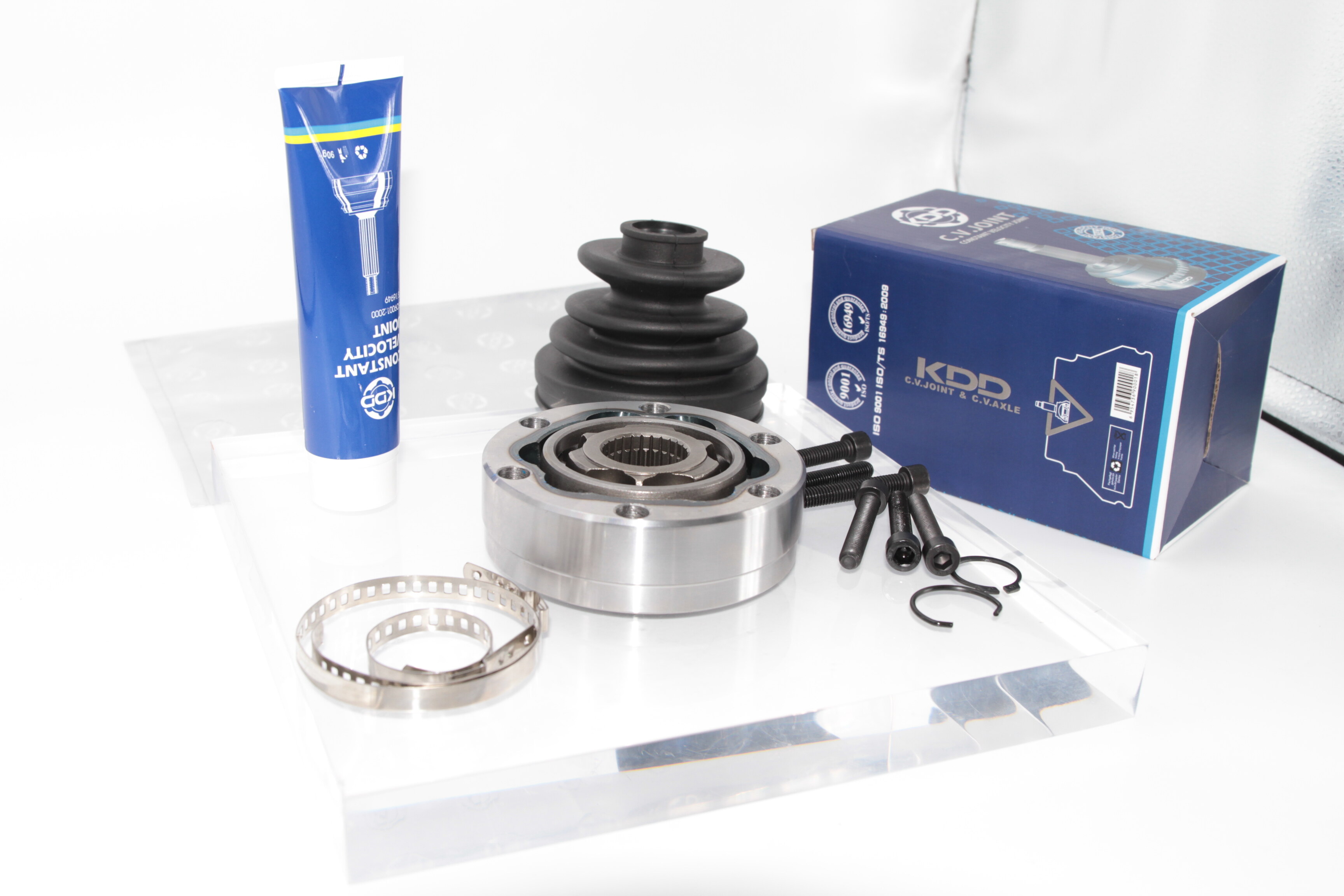Email format error
Email cannot be empty
Email already exists
6-20 characters(letters plus numbers only)
The password is inconsistent
Email format error
Email cannot be empty
Email does not exist
6-20 characters(letters plus numbers only)
The password is inconsistent


The Essential Guide to CV Joint Outer and Inner Manufacturers
When it comes to automotive components, CV joints (constant velocity joints) are indispensable for smooth and efficient power transmission from the drive shaft to the wheels. This blog explores the critical role of CV joint outer and inner manufacturers, offering insights into their significance, how to select the right manufacturer, and what makes these components essential to your vehicle's performance.
Understanding CV Joints
Before diving into the manufacturing side, it’s important to grasp what CV joints are and their role in your vehicle. CV joints are found in front-wheel drive, all-wheel drive, and some rear-wheel drive vehicles. They allow the drive shaft to transmit power through varying angles at a consistent rotational speed, minimizing friction and play. This flexibility is crucial for smooth vehicle operation, especially during turns and suspension movements.
Types of CV Joints
CV joints are categorized into two main types:
Outer CV Joints
The outer CV joints are located at the end of the drive shafts, connecting to the wheels. These joints handle the steering function and must endure extreme angles and movements associated with turning.
Inner CV Joints
The inner CV joints are positioned between the drive shafts and the differential or transmission. They accommodate suspension movements and allow for necessary length adjustments of the drive shaft.
Why Quality Manufacturing Matters
Choosing a reliable CV joint outer and inner manufacturer is essential for several reasons:
1. Reliability and Longevity: High-quality CV joints contribute to dependable vehicle performance and reduce the risk of premature failure.
2. Enhanced Performance: Superior manufacturing processes ensure that CV joints deliver smoother and more efficient power transmission.
3. Safety: Reliable CV joints are crucial for maintaining vehicle safety by ensuring stable and predictable handling.
Key Considerations for Selecting a Manufacturer
Experience and Expertise
A manufacturer’s experience and expertise are critical factors in ensuring the production of high-quality CV joints. A company with extensive experience in the industry is likely to produce more reliable parts. Research manufacturers with a strong track record and positive customer feedback.
Quality Control Measures
Effective quality control is fundamental in manufacturing CV joints. A reputable manufacturer will implement stringent quality control measures to ensure each part meets industry standards. This involves rigorous testing for durability, performance, and safety.
Technological Innovation
The automotive industry is constantly evolving, and so are the technologies used in CV joint manufacturing. Manufacturers who invest in cutting-edge technology and innovative processes are better equipped to produce high-quality components. This includes advanced materials, precision machining, and modern testing equipment.
Customization Capabilities
Different vehicles have specific requirements, making the ability to offer customized solutions a valuable trait in a manufacturer. Whether it’s specific dimensions, materials, or performance characteristics, a manufacturer who can tailor products to your needs adds significant value.
Customer Support and Service
Excellent customer support is vital, especially when dealing with complex automotive parts. A manufacturer that provides responsive and knowledgeable customer service can help address any issues promptly, ensuring a smooth experience.

The Role of CV Joint Outer and Inner Manufacturers
CV joint outer and inner manufacturers play a crucial role in the automotive industry. Their responsibility is to produce high-quality components that ensure reliable performance and safety. These manufacturers work with advanced technology and adhere to stringent quality standards to meet the demands of various vehicle models.
Choosing the right manufacturer involves evaluating their experience, quality control practices, technological capabilities, and customer support. By selecting a manufacturer who excels in these areas, you ensure that your vehicle benefits from dependable and high-performing CV joints.
The Manufacturing Process of CV Joints
Understanding how CV joints are made can provide further insight into their importance and the role of manufacturers. The process typically involves several key stages:
1. Design and Engineering
The first step in manufacturing CV joints is the design and engineering phase. Engineers and designers work together to create precise specifications that meet the performance requirements of different vehicle models. This stage involves using advanced computer-aided design (CAD) software to create detailed blueprints.
2. Material Selection
The choice of materials is crucial for the durability and performance of CV joints. Manufacturers select high-quality alloys and composites that can withstand the stresses and strains of daily driving. Common materials include hardened steel for the joint components and durable rubber or synthetic materials for the protective boots.
3. Precision Machining
Once the materials are selected, they undergo precision machining. This process involves cutting, shaping, and finishing the components to exact specifications. High-precision machines are used to ensure that each part fits perfectly and functions smoothly. This step is critical to achieving the desired performance and reliability of the CV joint.
4. Assembly
After machining, the individual components are assembled into a complete CV joint. This stage requires meticulous attention to detail, as the correct assembly is essential for the joint's functionality. During assembly, parts are carefully fitted together, and lubricants are applied to ensure smooth operation.
5. Testing and Quality Assurance
Before CV joints are shipped out, they undergo rigorous testing to ensure they meet quality standards. Testing may include checking for proper function, durability, and resistance to wear and tear. Manufacturers often use specialized equipment to simulate real-world conditions and verify that the CV joints perform as expected.
6. Final Inspection
The final inspection involves a thorough review of each CV joint to ensure it meets all quality and performance standards. Any parts that do not meet the required specifications are either reworked or discarded. This step ensures that only the highest-quality CV joints reach the market.
Trends in CV Joint Manufacturing
The CV joint manufacturing industry is continually evolving, driven by advancements in technology and changing consumer needs. Here are some current trends:
1. Increased Use of Advanced Materials
Manufacturers are increasingly using advanced materials to enhance the performance and durability of CV joints. For example, lightweight alloys and high-strength composites are being used to reduce weight and improve resistance to wear.
2. Focus on Sustainability
There is a growing emphasis on sustainability in the manufacturing process. Manufacturers are adopting environmentally friendly practices, such as reducing waste, recycling materials, and using energy-efficient processes.
3. Integration of Smart Technology
Smart technology is making its way into automotive components, including CV joints. Manufacturers are exploring ways to integrate sensors and monitoring systems into CV joints to provide real-time data on performance and condition.
4. Customization and Personalization
With the increasing demand for customized solutions, manufacturers are offering more options for tailoring CV joints to specific vehicle models and performance requirements. This trend reflects the growing need for personalized automotive parts.
How to Choose the Right CV Joint Manufacturer
Selecting the right CV joint manufacturer can significantly impact the performance and longevity of your vehicle. Here are some tips to help you make an informed decision:
Research and Compare: Conduct thorough research on potential manufacturers. Compare their experience, product range, quality control measures, and customer feedback.
Evaluate Capabilities: Assess the manufacturer’s ability to meet your specific needs, including customization options and technological capabilities.
Check Certifications: Look for manufacturers with industry certifications that indicate adherence to quality standards and best practices.
Review Warranties: Consider manufacturers that offer comprehensive warranties on their products. This can provide added assurance of their quality and reliability.
Consider Customer Support: Choose a manufacturer with a strong reputation for customer support. Responsive and helpful service can make a significant difference in your overall experience.
Conclusion
CV joints are vital components that play a key role in your vehicle’s performance and safety. Understanding the manufacturing process and the importance of selecting a reliable manufacturer can help ensure you get high-quality parts that meet your vehicle’s needs. By focusing on factors such as experience, quality control, and technological innovation, you can make informed decisions and choose a manufacturer that provides dependable and high-performing CV joints.
Whether you are a professional in the automotive industry or a vehicle owner, knowing the ins and outs of CV joint manufacturing will help you appreciate the complexity and importance of these crucial components. Quality and reliability should always be at the forefront when selecting CV joints, ensuring your vehicle remains in top condition and performs at its best.

